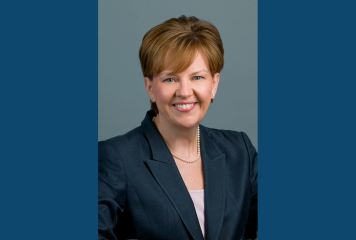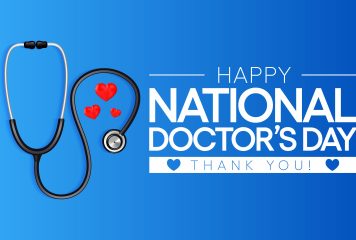Nephrology Board Meeting Summary, Spring 2021
August 30, 2021 | Posted by admin | Uncategorized
The Nephrology Board met virtually on March 26, marking approximately one year since the beginning of the COVID-19 pandemic. During that time, physicians certified in internal medicine and its subspecialties have been greatly affected by the novel coronavirus and the additional stress it placed on not only them personally, but the entire health care system. While the pandemic has permeated all aspects of society and was a topic of conversation throughout the Specialty Board meeting, the eight members of the Nephrology Board also addressed many other important issues facing the discipline.
Below is a recap of the key discussion topics from the meeting:
Leadership Update
Richard J. Baron, MD, ABIM President and CEO, joined the Nephrology Board and highlighted ABIM’s response to the pandemic in light of the additional burdens it has placed on so many physicians. After announcing in May 2020 that no one would lose certification if they weren’t able to complete a Maintenance of Certification (MOC) requirement that year, ABIM made a similar decision with a March 2021 announcement that deadlines for MOC requirements would be extended until the end of 2022.
This means:
• Physicians that have an assessment, attestation or points due in 2020 or 2021 will now have until 12/31/22 to complete them.
• Those who are due for an assessment in 2020, 2021 or 2022 will be able to participate in the Longitudinal Knowledge Assessment (LKA) when it launches in their specialty. Nephrology launches in 2022; see the full LKA availability and rollout schedule.
• All ABIM assessments will be offered as scheduled this year to allow physicians the flexibility to take an assessment if they would like to take one, even though it is not required.
• The Knowledge Check-In will not be offered after 2021.
Dr. Baron referenced information that was subsequently shared with all ABIM diplomates in the Spring 2021 News and Notes, including his message to ABIM diplomates acknowledging the challenges that the pandemic has wrought on the physician community.
Dr. Baron elaborated on ABIM’s response to COVID-19 and illustrated the important role board certified physicians play as trusted voices in medicine. One example can be seen by numerous ABIM Governance members sharing their vaccination ‘selfies’ on social media through the #MyCOVIDVax campaign.
Dr. Baron also reflected on another pillar of ABIM’s strategic efforts in 2021: Diversity, Equity and Inclusion (DEI). He connected the nation’s negative health outcomes caused by the novel coronavirus and the disturbing reality of health disparities in Black and Brown communities that are now being further exacerbated by the pandemic, and he stressed the important role ABIM and the ABIM Foundation play in addressing these issues. He referenced the organization’s joint Statement on Racial Justice issued in summer 2020 and the tangible next steps to realize this vision, including a grant program to build trust and equity in internal medicine training
Diversity, Equity and Inclusion: Opportunities for Collaboration and Advancement
Echoing Dr. Baron’s report, ABIM’s Senior Vice President of Communications and Chief Diversity, Equity and Inclusion Officer, Pamela Browner White, stressed ABIM’s commitment to addressing racism and structural inequalities by integrating DEI into all facets of ABIM both as a professional standard setting organization and as an employer, and she expressed pride in ABIM’s Commitment to Health Equity one year after its Statement on Racial Justice.
Ms. Browner White was joined by Lorna Lynn, MD, Vice President for Medical Education Research and the Staff Administrator for the Board of Directors’ Committee on Diversity, Equity and Inclusion, with representation from ABIM’s Board, Council and Exam Committees, and from ABIM Foundation’s Board of Trustees. Pilar Padilla, ABIM’s Communications Integration Manager at the time of the meeting, also helped to facilitate the discussion.
Kevin Longino, CEO of the National Kidney Foundation (NKF), was in attendance during this session, as were three guests from the American Society of Nephrology (ASN):
- Susan E. Quaggin, MD; ASN President
- Tod Ibrahim, ASN Executive Vice President
- Jin Soo Kim, ASN Senior Director of Education
After a brief presentation, Ms. White, Dr. Lynn and the Nephrology Board engaged in a conversation with ASN and NKF guests, framed around a number of questions:
1) What are the opportunities for collaboration with other organizations around diversity, equity and inclusion?
2) With respect to race and ethnicity, what does the workforce look like in the field? How can the specialty recruit and retain a more diverse physician workforce, to better serve patients?
3) What are the known inequities in health and health care in the specialty? What role can ABIM play in mitigating these inequities?
Mr. Ibrahim provided an update on recent ASN developments, including the ongoing work of the ASN Diversity, Equity and Inclusion Committee. Nephrology Board member Deidre C. Crews, MD was formerly the Chair of the ASN DEI Committee, and an informative discussion followed about the group’s various initiatives. Read more about Dr. Crews and her efforts to combat racism and racial disparities in kidney care in this recent ABIM blog post.
Mr. Longino shared thoughts on some areas where there could be opportunity to collaborate, including patient advocacy to Congress and the Biden Administration to increase research spending on kidney disease and its disproportionate impact on communities of color. He also highlighted integrating DEI into education and wellness materials as an area where organizations can partner to increase collective impact, and he suggested working with allied health professionals in DEI to help develop the curriculum.
The ensuing discussion focused largely on workforce opportunities, including outreach to diverse audiences early in their careers and perhaps even at the high school or undergraduate level to expand the pipeline of future nephrologists. Dr. Quaggin commented on how workforce issues are especially important in nephrology; there is a strong desire to recruit more physicians from historically disadvantaged backgrounds into the field, which may require reevaluating educational priorities for medical students, residents, and fellows. For example, should undergraduate and graduate medical education make more of an effort to ensure trainees have direct experience with patients from minoritized populations? She identified a potential opportunity for collaboration with ABIM and the ABIM Foundation through its DEI grant program, which encourages incorporating DEI into internal medicine training. Mr. Longino echoed the importance of addressing the pipeline as a public health crisis that should rise to national prominence once the pandemic subsides, especially because COVID-19 is creating new kidney patients.
Dr. Quaggin also shared that, later this year, ASN is piloting a Loan Mitigation Pilot Program. This loan repayment program was designed for internal medicine residents from historically disadvantaged backgrounds, who are traditionally underrepresented in medicine, in an effort to help bolster the pipeline of future nephrologists. Dr. Quaggin also highlighted ASN’s Kidney STARS as a successful program that has offered travel support to hundreds of students and residents for ASN Kidney Week since 2015. To advance health equity for patients, she proposed nephrology should be a core requirement for all internal medicine residents early in their training, to ensure graduates can diagnose and treat kidney diseases, which disproportionately affect minoritized populations.
There was general consensus from all in attendance that this was only the beginning of these conversations, and ABIM explored the issues further with its many society partners during the Internal Medicine Summit that was held virtually in June. This annual meeting brings together high-level leaders from numerous professional societies – including ASN and the Renal Physicians Association (RPA) – to discuss pressing issues in the IM community. At this year’s Summit, ABIM and its society guests explored the topic of DEI and how the various stakeholders can collaborate in this area to amplify collective impact.
Discipline-Specific Topics (Continued from Previous Specialty Board Meetings)
The next two sessions followed up on conversations from previous Nephrology Board meetings, and the group was joined by Nephrology Board Chair Emeritus Jeffrey S. Berns, MD.
Nephrology Procedures
The Nephrology Board discussed its ongoing work with ASN related to perceived deficits in procedural competency in nephrology training. ABIM’s training and procedure requirements are available online. Specialty Board members discussed whether the procedure requirements for nephrology certification should change further, in particular related to temporary dialysis catheter placement, kidney biopsy, and home dialysis therapies. Board members recommended a plan to vet the question of changing procedure requirements with nephrologists and nephrology stakeholders, including surveying the nephrology community about practice patterns related to the currently requirements.
Nephrology Certification Exam Performance Analysis
In recent years, nephrology fellowship programs have had lower fellowship match rates and examinees have had lower pass rates on the Nephrology Certification Examination compared to other disciplines. To understand factors associated with nephrology exam performance, staff is conducting an analysis of characteristics associated with exam performance which will be forthcoming.
Discussion of Future Specialty Board Membership
The Nephrology Board dedicated considerable time to discussing the qualifications of the many outstanding candidates that applied for Specialty Board membership. Throughout this process, special care is given to ensuring that new members enhance the group’s diversity in terms of age, gender, race/ethnicity, geographic location and practice type. Specialty Board members are ultimately chosen by the ABIM Council, who have oversight of Specialty Board composition across ABIM disciplines.
ABIM encourages diplomates who are interested, to check ABIM’s Governance Openings with new positions opening soon on ABIM’s Item-Writing Task Forces.
ABIM Research Update
ABIM Senior Vice President of Assessment and Research, Rebecca Lipner, PhD, and team shared ABIM’s research strategy that was developed by a joint Board of Directors–ABIM Council Research Strategy Subcommittee composed of Vineet Arora, MD, Seth Landefeld, MD and Susan Edgman-Levitan. The strategy outlines three broad areas for ABIM to focus its efforts:
- Foundational Science
- External Validation Studies
- Public Awareness Research
The recent research of Dr. Lipner’s team sought to better understand trends in healthcare and how MOC performance is linked with better patient care. Read more about recently published research on ABIM’s blog, including the following articles:
- Critical Care Medicine Journal: Critical Care Physicians Treating COVID-19 Patients Report Continued High Levels of Stress and Staff and PPE Shortages
- Academic Medicine: Gender Differences in Milestone Ratings and Medical Knowledge Examination Scores Among Internal Medicine Residents
- BMJ Open: The Association Between Primary Care Physician Diagnostic Knowledge and Death, Hospitalization and Emergency Department Visits Following an Outpatient Visit at Risk for Diagnostic Error: A Retrospective Cohort Study Using Medicare Claims
The Specialty Board was asked for ideas about research that could be done on health care outcomes in nephrology to explore further links between Board Certification status and patient care.
Longitudinal Knowledge Assessment (LKA): Communications and Governance Engagement Update
Specialty Board members and ABIM Communications staff discussed how ABIM Governance can help get the word out to their colleagues about the positive changes to come with the upcoming launch of the LKA. Some members shared their experience engaging with the community on behalf of ABIM through participation in activities such as Grand Rounds or presentations at society meetings, and they revealed tips on proven tactics to effectively reach nephrologists.
Due to time constraints, the following LKA Communications Update was provided to Nephrology Board members as a follow up after the meeting.
ABIM Communications staff shared new developments on the name, branding and a preview of forthcoming communications in support of the longitudinal assessment, which will launch in Nephrology in 2022. In early April ABIM announced the official name of new assessment option – the Longitudinal Knowledge Assessment (LKATM) – via its quarterly newsletter distributed to more than 215,000 diplomates. In addition to the name, ABIM also revealed LKA-specific branding and imagery, along with a new mini website available at abim.org/lka. ABIM Governance members are featured prominently on the new site and supporting collaterals in an effort to deepen connections between ABIM and the internal medicine community. The presentation materials also touched on the forthcoming launch of a new ABIM Physician Portal App that allows diplomates to easily check in on MOC program requirements and track progress towards fulfilling those requirements. The app is available for download now in the Google Play Store or the Apple App Store.
Additional information was shared as a preview for the group on how the LKA will work, including earning MOC points using the LKA and updated MOC fees for 2022 (with the LKA included).
Specialty Board Oversight of Discipline-Specific Assessments
Specialty Boards serve as the governing body that has oversight of the assessments and Exam Committees in their discipline, and have the responsibility of periodically approving the assessment blueprints and standards for Certification and MOC. At this session, staff from the ABIM Assessment and Research team presented members with workforce information for their specialty, training pipeline trends, and assessment outcome trends, to better inform future decisions related to assessments.
In Closing
The Nephrology Board values the feedback and commentary of the entire medical community, including diplomates and society partners.
Do you have any questions? Are you interested in how to get involved?
If you have questions after reading this report, please connect with us through the following channels:
- Subscribe to the ABIM blog
- Call:1-800-441-ABIM (2246)
- Email: request@abim.org
- Join our Governance to help guide our future direction
Join our Community Insights Network to share your feedback.



